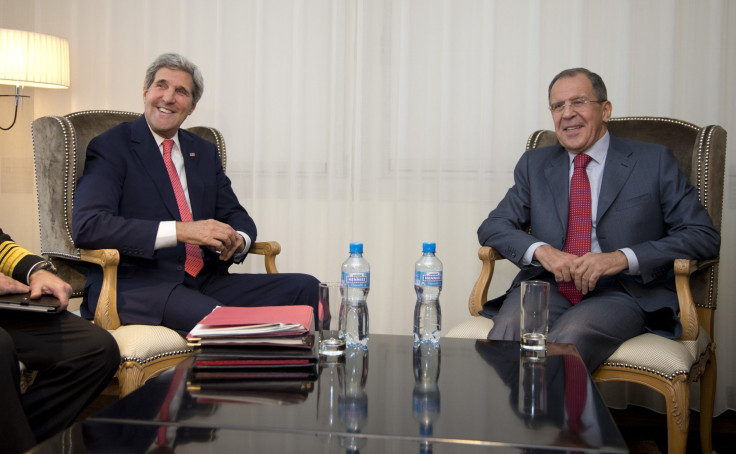Iran Nuclear Deal Could Lead To More Sanctions From Congress

Over the weekend, American diplomats reached a historic deal with Iran, which loosens sanctions in exchange for Iran curbing its nuclear ambitions. But if members of Congress have their way, the deal could lead to more sanctions against Iran in the end.
On Sunday in Geneva, diplomats from the United Kingdom, China, France, Germany, Russia and the United States, including Secretary of State John Kerry, reached a preliminary deal with Iranian diplomats to lighten sanctions and limit the amount of uranium Iran enriches. The deal was meant to buy more time in hopes of a deeper long-term agreement, but members of Congress have expressed such displeasure with the deal that sanctions could actually increase.
"The disproportionality of this agreement makes it more likely that Democrats and Republicans will join together and pass additional sanctions when we return in December," Sen. Charles Schumer (D-N.Y.) told the Wall Street Journal.
Schumer isn’t alone among Democrats who see problems with the Iran deal. Sen. Robert Menendez (D-N.J.), head of the Senate Foreign Relations Committee, also told the Journal that the “agreement did not proportionally reduce Iran’s nuclear program,” noting Iran’s “history of duplicity” in regards to its nuclear ambitions.
Republican senators have expressed similar sentiments. In a statement posted to his website, Sen. John McCain (R-Ariz.) said, "I am concerned this agreement could be a dangerous step that degrades our pressure on the Iranian regime without demonstrable actions on Iran's part to end its pursuit of a nuclear weapons capability -- a situation that would be reminiscent of our experience over two decades with North Korea. For this reason, I will continue working with my colleagues in Congress to keep the pressure on the Iranian regime, including by action on additional sanctions.”
McCain also retweeted a Wall Street Journal article claiming that under the current deal, Iran can continue to enrich uranium at approximately 10,000 centrifuges.
Many Congress members may in part be outraged by the secrecy of the deal with Iran. The Associated Press reports that diplomats began meeting with Iranian delegates as far back as 2011 to discuss such a deal, though many Congress members were left out of the loop.
Meanwhile, Israeli Prime Minister Benjamin Netanyahu also condemned the deal with Iran.
“What was achieved last night in Geneva is not a historic agreement, but a historic mistake,” Netanyahu said on Sunday. “Today the world has become a much more dangerous place because the most dangerous regime in the world has taken a significant step toward attaining the most dangerous weapon in the world.”
© Copyright IBTimes 2024. All rights reserved.





















